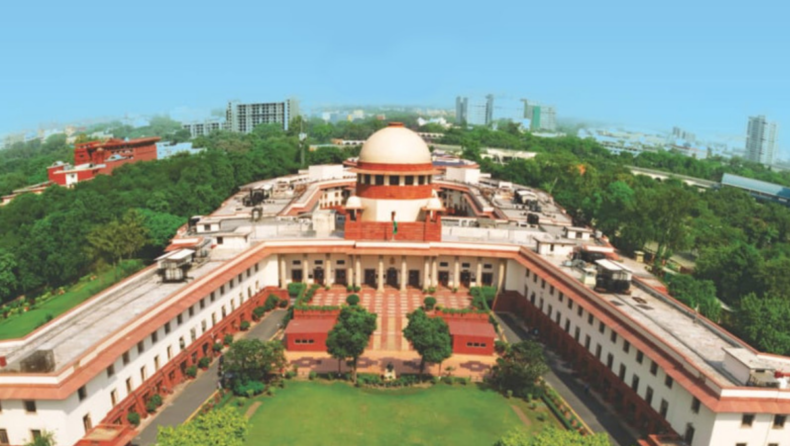The Supreme Court admitted a writ petition filed by academician and environmentalist Professor K Purushotham Reddy, seeking directions to the central government to implement the provisions of the Andhra Pradesh Reorganisation Act (APRA) 2014 to increase the number of assembly seats in both Telangana and the Andhra Pradesh States.
The division bench of the apex court, comprising Justice K.M. Joseph and Justice Hrishikesh Roy, has ordered notices to be issued to the Election Commission of India, the Central Government, and both Telugu State governments.
The three-member delimitation commission, constituted in 2020, was appointed only to look after the legislative assembly seats of J&K and neglected both Telugu states, which violates Articles 14, 19, and 21, the petitioner’s counsel submitted before the division bench.
strong pitch for an increase in seats
With elections just a year away in Telangana State, the increase in the number of seats will marshal the political parties to acclimate seats to their second line of cadre.

Political leaders from both states constantly demand the central government to increase the seats as per section 26 of APRA 2014. The central government avoided the demand by stating that another constitutional provision makes it impossible until at least after the 2031 census.
But in 2020, the pitch has been queered by the central government by allowing the delimitation of the Legislative Assembly seats of the Union Territory of Jammu and Kashmir.
Census 2021 is yet to take place because of COVID-19, and the population has risen steadily in both states since the 2011 census.
For administrative purposes, both Telangana and Andhra Pradesh have increased their districts from 10 to 33 and 13 to 26, respectively. Similarly, political parties demanding an increase in assembly seats as per section 26 of the APRA act will help lawmakers reach people easily.
Implementation of Section 26 of APRA 2014
As per Section 26 of the Andhra Pradesh Reorganisation Act 2014, the number of seats in the Legislative Assembly of Andhra Pradesh would be increased from 175 to 225 and, similarly, in Telangana, from 119 to 153 seats.
However, Article 170(3) of the Constitution states that “ the total number of seats in the legislative assembly of each state shall not be readjusted till after the first census is published post the year 2026.”

In the recently concluded parliament session, Rajya Sabha Member of Parliament, G.V.L. Narasimha Rao, on July 27, asked an unstarred question on the implementation of section 26 of the AP organization act and the time frame thereof.
The Minister of State in the Ministry of Home Affairs replied, “Unless and until article 170 of the constitution is amended in line with section 26 of the Andhra Pradesh Reorganisation Act 2014, the number of seats cannot be increased.”
Former Supreme Court Judge on J&K Delimitation Case
A three-member delimitation commission comprises former Supreme Court Judge Ranjana Prakash Desai, the then Chief Election Commissioner Sushil Chandra, and Chief Electoral Officer of UT Jammu & Kashmir KK Sharma.
The commission was set up on March 06, 2020, to increase the number of legislative Assembly seats in the recently formed Union Territory of Jammu and Kashmir from the existing 83 to 90 seats as provided for in the Jammu and Kashmir Reorganisation Act 2019.
The court has also ordered to register that the civil writ petition is tagged with the challenge on the delimitation of Legislative Assembly seats in Jammu and Kashmir (Haji Abdul Gani Khan & Anr. vs. Union of India & Ors). The Jammu and Kashmir cases are expected to be heard on September 29.












